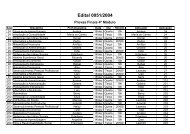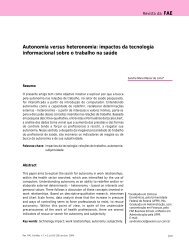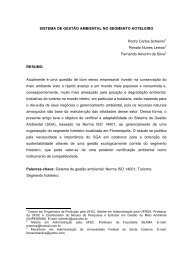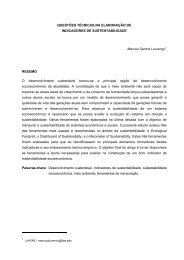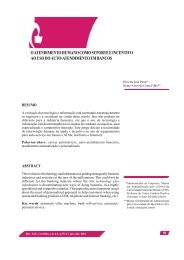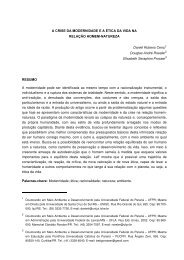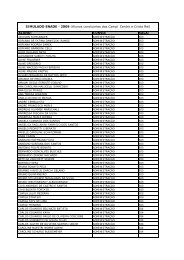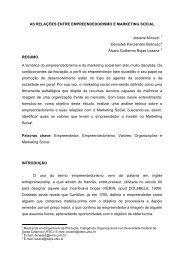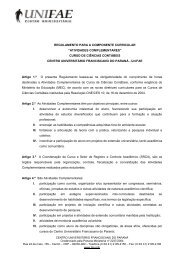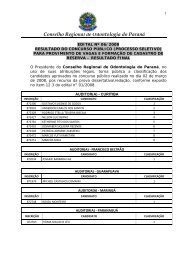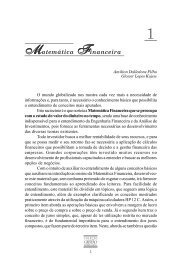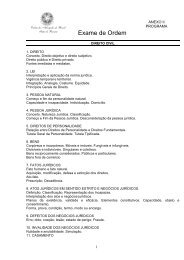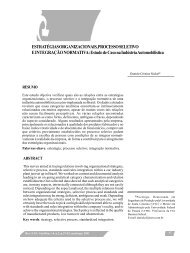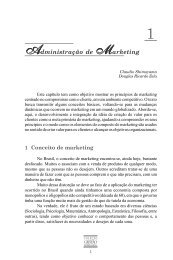Português/Inglês, Geografia e História
Português/Inglês, Geografia e História
Português/Inglês, Geografia e História
Create successful ePaper yourself
Turn your PDF publications into a flip-book with our unique Google optimized e-Paper software.
INGLÊSTexto para as questões 16 a 25.WAR IN THE SHADOWSBy David IgnatiusThe White House and Pentagon are giving newsy briefings each day on the progressof the war against terrorism. But the Central Intelligence Agency's part in that battle has trulybeen a war in the shadows.The CIA isn't talking much, reasonably enough. But some soundings last week withintelligence sources shed a little light on what the agency is doing around the world – and onits broad strategy against Osama bin Laden and his al Qaeda terrorist network.Perhaps the simplest explanation is that the CIA is trying to build a global"intelligence coalition" similar to the overt military and diplomatic alliance the Bushadministration has gathered since Sept. 11. The aim of this coalition is to penetrate theterrorist network, disrupt its operations and, in the sort of language favored by PresidentBush, "take it down." (…)The agency's broad goal is to recreate the kind of powerful intelligence network itmaintained against the Soviet Union during the Cold War years. In those days, the CIAwould sometimes create local security services almost from scratch: train their people, pumpthem up with money and use them as witting or unwitting assets in monitoring and checkingthe Soviets. (…)This is a war in which money can work wonders. It helps the CIA build up theintelligence services of its allies. And it helps the CIA buy the loyalty of people who know alQaeda's secrets and can subvert its operations.What gives top CIA officials some confidence – and should also cause them someembarrassment – is that they have been fighting a war against bin Laden for five years. Thisis not an enemy who suddenly sneaked up on the United States in the dark. Starting in1996, the CIA even created what it called a "shadow station" targeted solely on bin Laden.The CIA views al Qaeda as a masterfully elusive foe. When al Qaeda mounts acomplex operation such as the Sept. 11 suicide attacks, it already has its next operationplanned. When it discovers that its communications links have been blown, as apparentlyhappened after a press leak in 1998, the organization becomes further decentralized, so thatdecisions are taken by individual cells without requiring authorization from a cave inAfghanistan.The agency believes al Qaeda wasn't just lucky in its terrorist spectacular – it wassupremely well trained. The hijackers appear to have understood FAA boarding proceduresand even the fact that pilots are trained to cooperate initially with hijackers (a tactic that hasusually saved lives in the past). (…)What gives the CIA some confidence it will eventually prevail in this shadow war isthat it has had a certain number of secret successes in thwarting bin Laden. The agencywas on global alert for an al Qaeda terrorism spectacular in January 2000 timed to coincide11



